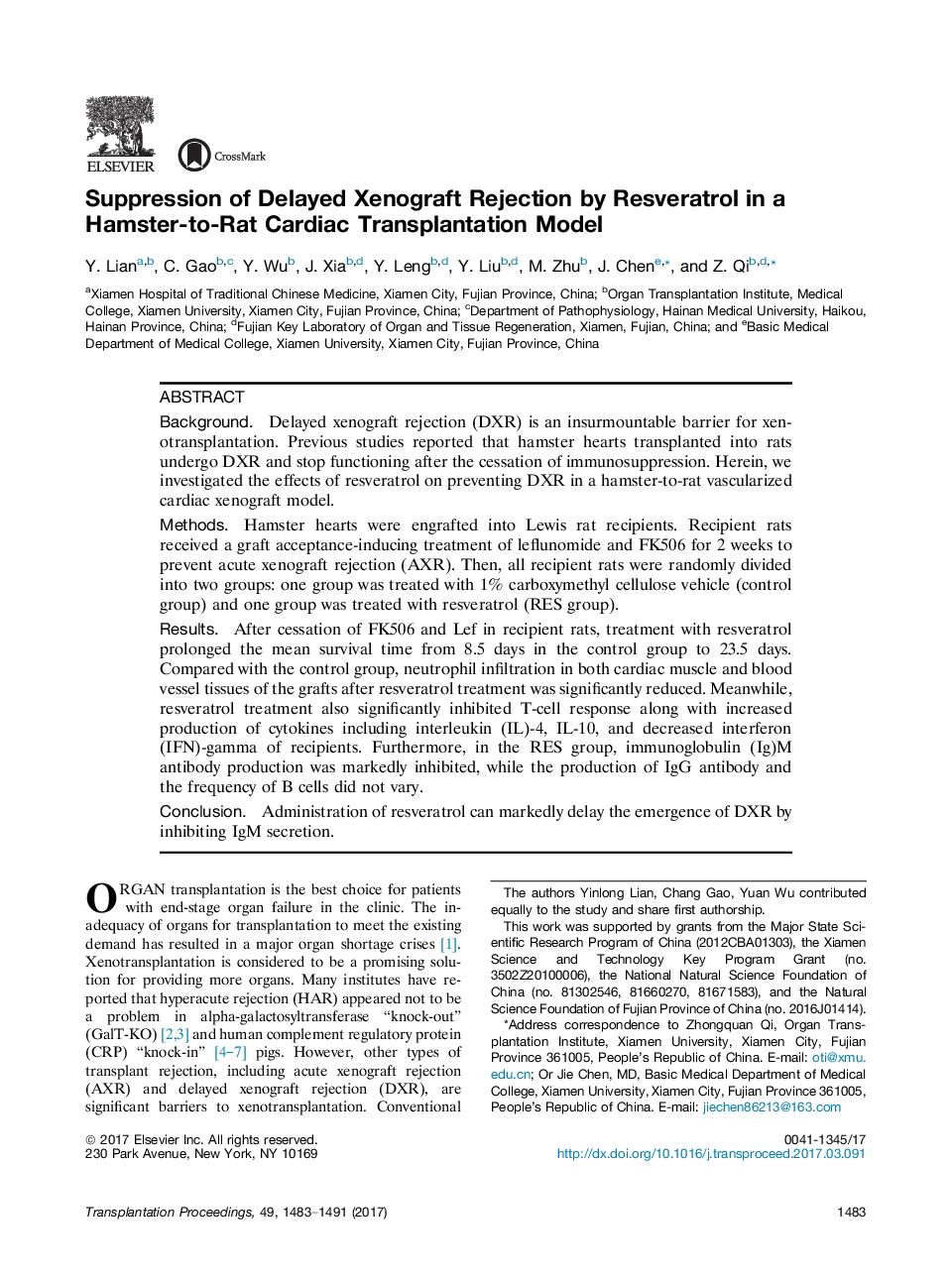| Article ID | Journal | Published Year | Pages | File Type |
|---|---|---|---|---|
| 5728714 | Transplantation Proceedings | 2017 | 9 Pages |
â¢Resveratrol can markedly delay the emergence of DXR.â¢Resveratrol can inhibit T-cell proliferation and cytokine production.â¢Resveratrol can reduce IgM secretion.
BackgroundDelayed xenograft rejection (DXR) is an insurmountable barrier for xenotransplantation. Previous studies reported that hamster hearts transplanted into rats undergo DXR and stop functioning after the cessation of immunosuppression. Herein, we investigated the effects of resveratrol on preventing DXR in a hamster-to-rat vascularized cardiac xenograft model.MethodsHamster hearts were engrafted into Lewis rat recipients. Recipient rats received a graft acceptance-inducing treatment of leflunomide and FK506 for 2 weeks to prevent acute xenograft rejection (AXR). Then, all recipient rats were randomly divided into two groups: one group was treated with 1% carboxymethyl cellulose vehicle (control group) and one group was treated with resveratrol (RES group).ResultsAfter cessation of FK506 and Lef in recipient rats, treatment with resveratrol prolonged the mean survival time from 8.5 days in the control group to 23.5 days. Compared with the control group, neutrophil infiltration in both cardiac muscle and blood vessel tissues of the grafts after resveratrol treatment was significantly reduced. Meanwhile, resveratrol treatment also significantly inhibited T-cell response along with increased production of cytokines including interleukin (IL)-4, IL-10, and decreased interferon (IFN)-gamma of recipients. Furthermore, in the RES group, immunoglobulin (Ig)M antibody production was markedly inhibited, while the production of IgG antibody and the frequency of B cells did not vary.ConclusionAdministration of resveratrol can markedly delay the emergence of DXR by inhibiting IgM secretion.
